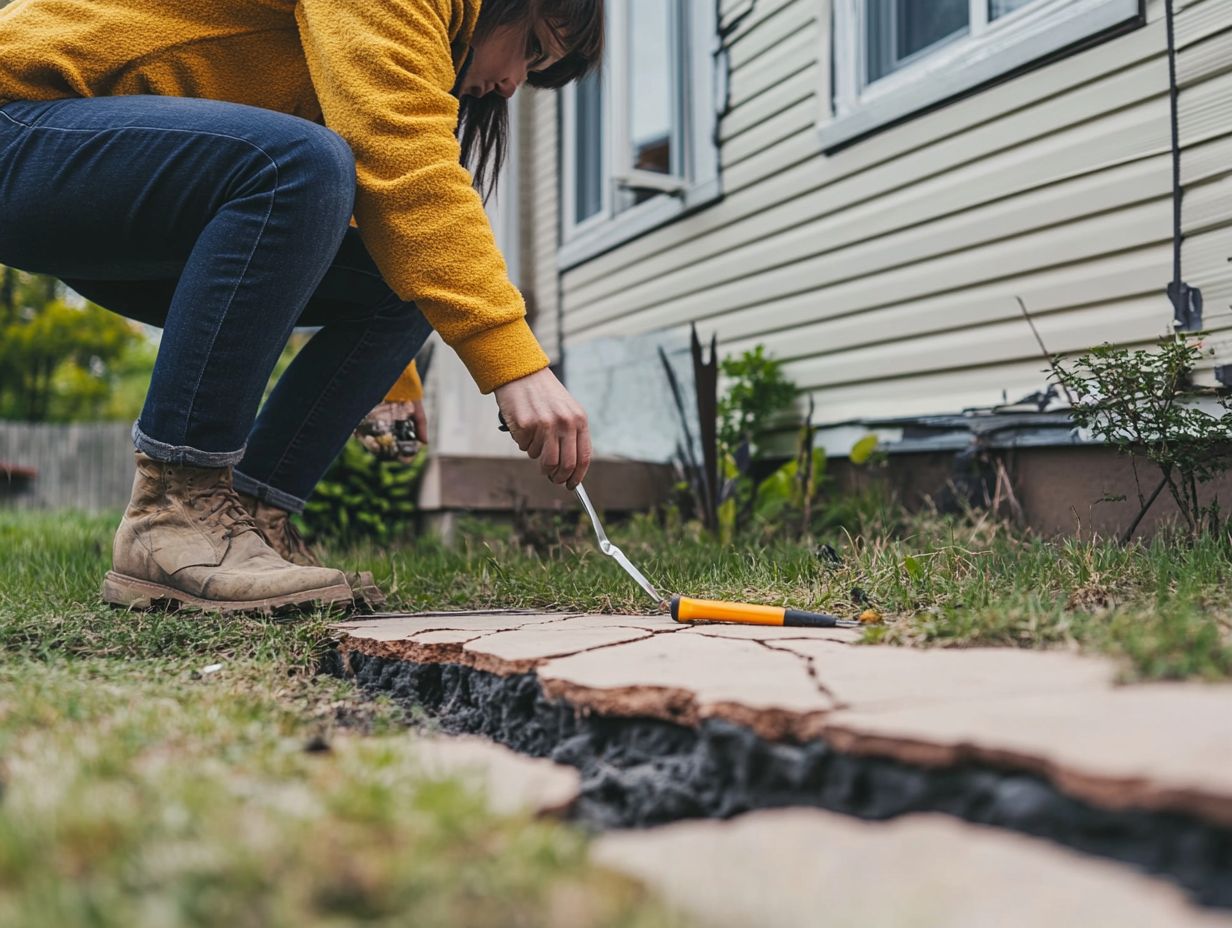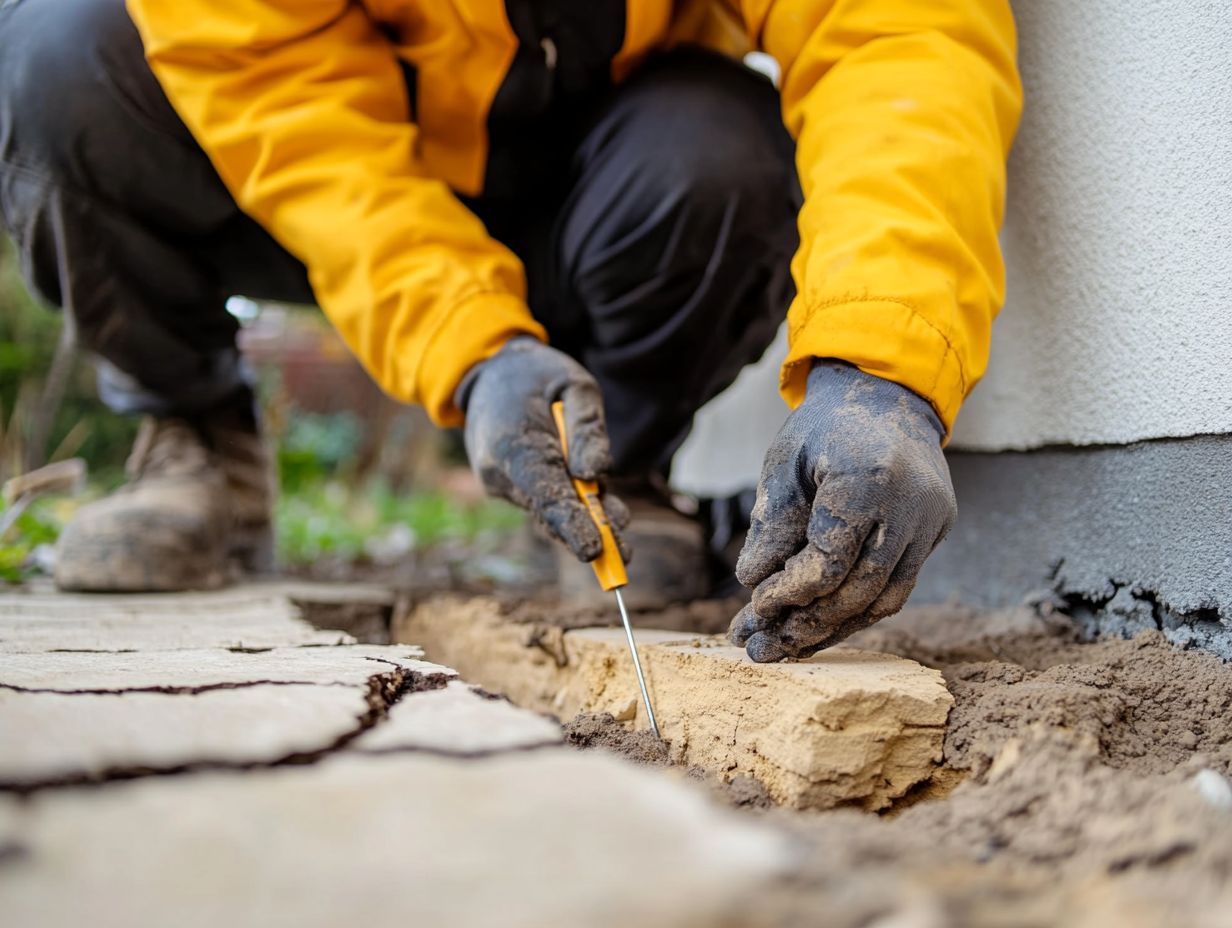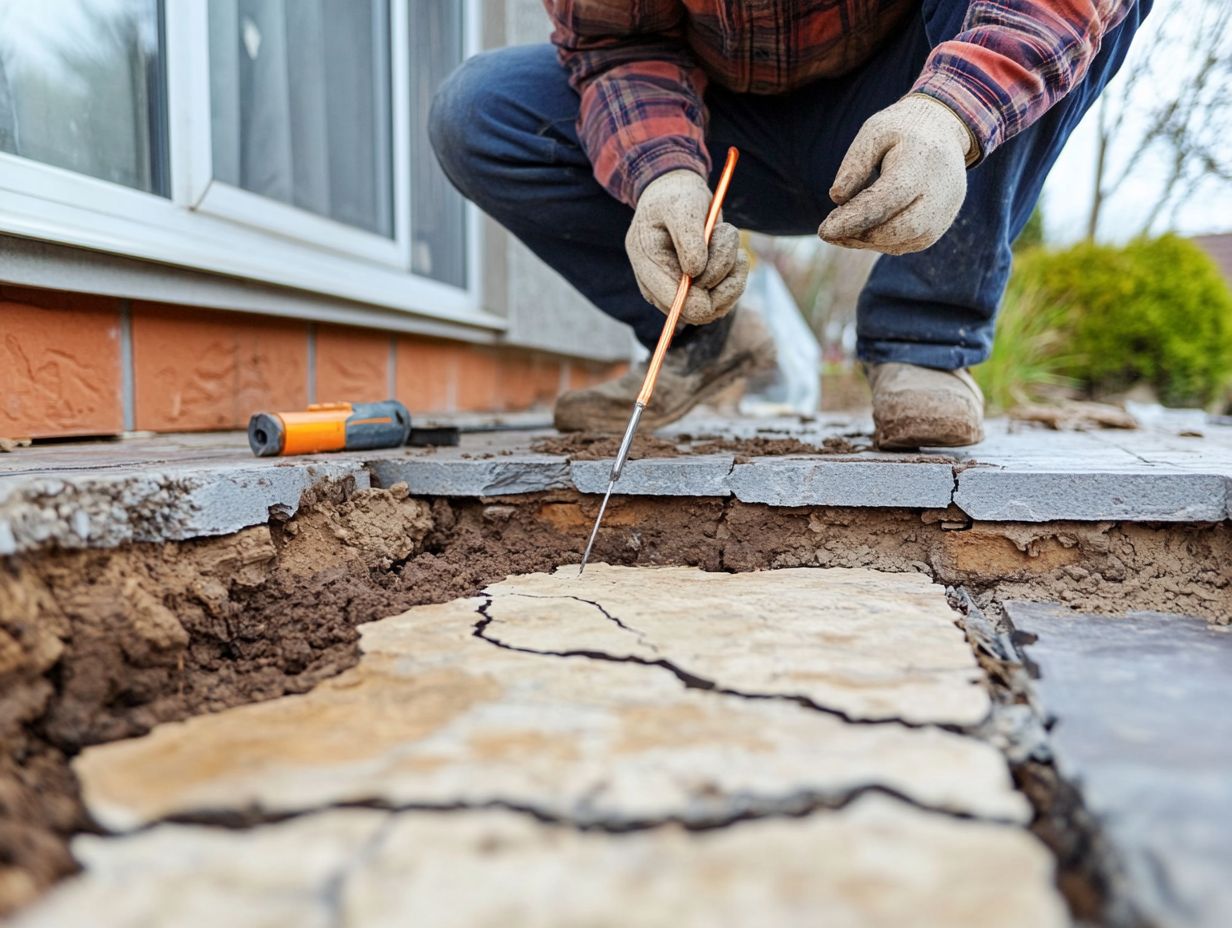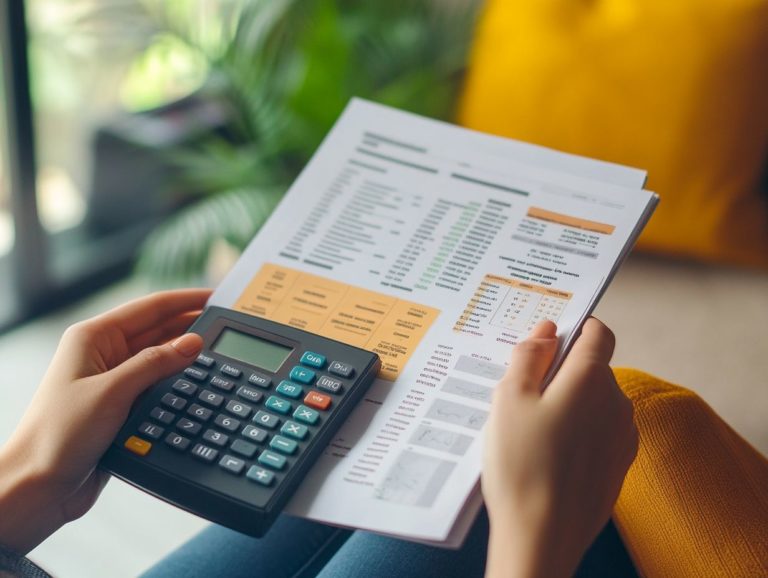How to Evaluate a Home’s Condition
Evaluating a home’s condition is essential for you, whether you are a homeowner or a prospective buyer. It can greatly influence safety, comfort, and the investment value of the property.
This guide will take you through vital assessments needed. Start with the exterior by looking closely at the roof, siding, and foundation. Then, move to the interior, where you will examine structural integrity and identify potential hazards.
You will also delve into the plumbing and electrical systems. Assess heating and cooling efficiency while considering important environmental factors.
With these insights in hand, don t wait to uncover potential issues! You will be well-prepared to make informed decisions about your home.
Contents
- Key Takeaways:
- Understanding the Importance of Evaluating a Home’s Condition
- Exterior Evaluation
- Interior Evaluation
- Plumbing and Electrical Systems
- Heating and Cooling Systems
- Additional Factors to Consider
- Frequently Asked Questions
- How do I evaluate a home’s condition?
- What are the key areas to inspect when evaluating a home’s condition?
- What should I look for in a home’s foundation?
- How important is the roof when evaluating a home’s condition?
- What are the signs of electrical and plumbing issues in a home?
- Should I get a professional home inspection when evaluating a home’s condition?
Key Takeaways:

Regular home evaluations are vital! They affect safety and value. Check the roof, siding, and foundation closely they are key to your home’s integrity. Inspect plumbing and electrical systems to ensure safety. Remember, maintaining heating and cooling systems is just as crucial!
Understanding the Importance of Evaluating a Home’s Condition
Knowing a home’s condition is essential for homeowners and buyers. It helps you spot issues and assess the property s value.
A thorough house evaluation aids in determining the home’s worth and uncovers safety hazards, maintenance concerns, and energy efficiency aspects that could influence your future living experience.
By grasping these elements, you can make informed purchasing decisions. As a homeowner, you can tackle necessary repairs to keep your property in prime condition, ensuring its longevity and value retention.
Why it Matters for Homeowners and Buyers
For buyers and sellers, understanding a home s condition is crucial. It helps with negotiations and builds trust. A detailed evaluation gives you the confidence to move forward.
This vital assessment provides a comprehensive overview, revealing safety hazards that could pose risks and shaping the course of potential negotiations.
By conducting a thorough home evaluation, you gain insight into necessary repairs. This instills a sense of confidence in your purchasing decision.
For sellers, offering a transparent evaluation fosters trust and paves the way for smoother transactions, ensuring that both parties are aligned regarding the property s condition.
In this intricate landscape of buyer-seller dynamics, a detailed home inspection not only informs repair negotiations but also offers a competitive edge in the market, highlighting the critical role of professional property assessments.
Exterior Evaluation
An exterior evaluation is key. Check your roof, siding, and foundation for wear that affects integrity.
During this evaluation, be on the lookout for any signs of wear or damage. A thorough inspection can uncover maintenance issues that, if addressed in a timely manner, can prevent costly repairs down the line and enhance the home’s overall value and market appeal.
Assessing the Condition of the Roof, Siding, and Foundation
Start with the roof. Look for missing shingles and signs of wear that could lead to leaks. Next, check the siding for cracks or warped sections that might indicate water damage or pest infiltration.
Pay close attention to the foundation; visible cracks or unevenness can signal serious issues that may affect the entire structure.
It s best to hire a pro. They can spot hidden issues that affect value. These thorough assessments will ultimately enable you to make informed decisions regarding maintenance or potential renovations.
Interior Evaluation

Evaluating your home s interior is key to finding structural issues and safety hazards. This careful check of walls, floors, and ceilings helps you spot maintenance problems early.
Both homeowners and potential buyers can ensure that interiors meet safety standards. This can keep everyone living in the home safe and sound!
Checking for Structural Issues and Potential Hazards
Checking for structural problems is essential for your home s safety. Look out for cracks in walls or uneven floors they’re red flags!
Be wary of old wiring and plumbing systems. Ignoring these issues can lead to serious problems down the line!
Plumbing and Electrical Systems
Check your plumbing and electrical systems for potential hazards. These essential systems can cause serious safety issues if they malfunction!
A good home inspection includes checks for:
- Water pressure
- Leaks
- Pipe condition
- Wiring integrity
- Outlets
- Circuit breakers
Fixing any problems found here helps ensure a safe and comfortable home.
Identifying Red Flags and Ensuring Safety
Spotting red flags in plumbing and electrical systems is vital for your home s safety. Discolored water may indicate rust in the pipes this can lead to costly repairs!
Frequent power outages or flickering lights often mean an overloaded electrical system. Never ignore these signs they could mean deeper issues!
Heating and Cooling Systems
Evaluating your heating, ventilation, and air conditioning (HVAC) systems is crucial for energy efficiency. Knowing their condition helps you plan repairs or upgrades.
Check the system’s functionality, age, and maintenance history to ensure safety and performance.
Efficiency and Maintenance Considerations

Regular checks and filter replacements keep your HVAC system running well. This not only lowers your utility bills but also benefits the environment!
Proper maintenance extends the system’s lifespan and boosts your home’s value. Energy-efficient homes attract buyers, making it a smart investment!
Additional Factors to Consider
When evaluating a home, consider factors such as environmental conditions and upgrades that can enhance energy use and overall value.
These factors affect your long-term comfort and sustainability. Recognizing their impact is vital for both buyers and current homeowners.
Assessing local climate influences and planning energy-efficient improvements can significantly affect your property’s long-term viability and attractiveness.
Key Environmental Factors
Environmental factors and potential upgrades are essential during home evaluations. They can influence energy efficiency and property condition.
- The presence of nearby trees can provide shade in hot months, reducing cooling costs.
- Well-placed water sources can enhance drainage and prevent structural issues.
- Understanding prevailing winds can improve your home’s natural ventilation, affecting comfort levels.
By implementing upgrades like energy-efficient windows and solar panels, you boost your home’s market appeal and pave the way for long-term savings on utility bills. Don’t ignore these factors they can make a huge difference!
Frequently Asked Questions
How do I evaluate a home’s condition?
To evaluate a home’s condition, start by inspecting both the exterior and interior. Look for visible damage, such as cracks and leaks. Consider hiring a professional inspector for a thorough assessment.
What are the key areas to inspect when evaluating a home’s condition?
The key areas to inspect include:
- Foundation
- Roof
- Electrical and plumbing systems
- HVAC system
- Overall structural integrity
Check for signs of mold, water damage, and pest infestations.
What should I look for in a home’s foundation?
When evaluating a home’s foundation, look for:
- Cracks
- Unevenness
- Signs of settling
These can indicate potential structural issues. Also, check for water damage or moisture problems.
How important is the roof when evaluating a home’s condition?
The roof is crucial as it protects the home from the elements. Look for:
- Missing or damaged shingles
- Signs of leaks
- Condition of the gutters
Poor roof condition can lead to costly repairs or replacements.
What are the signs of electrical and plumbing issues in a home?
When evaluating a home, check for:
- Flickering lights
- Non-working outlets
- Visible wiring
For plumbing, watch for leaks, check water pressure, and note the age of the pipes. These issues can be costly to repair.
Should I get a professional home inspection when evaluating a home’s condition?
Yes! It’s highly recommended to hire a professional home inspector. They have the expertise and tools to uncover potential issues that might not be visible to the untrained eye. This helps you make an informed decision before purchasing a home.
Ready to evaluate your home? Let s get started!






